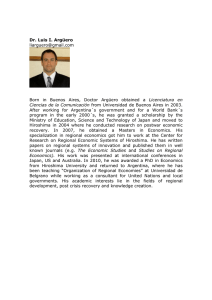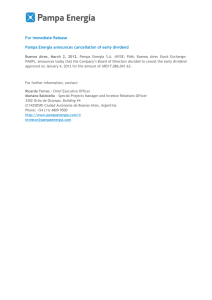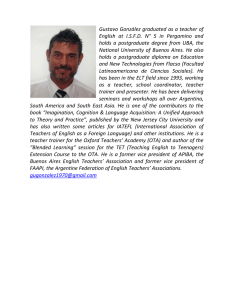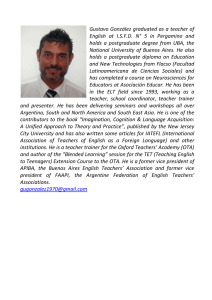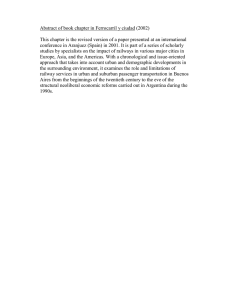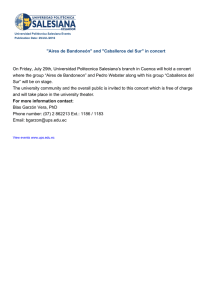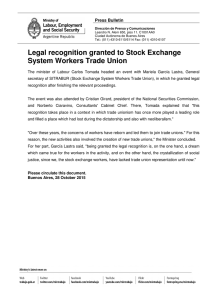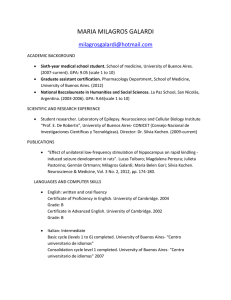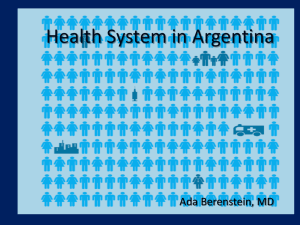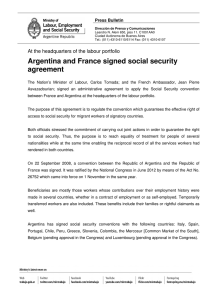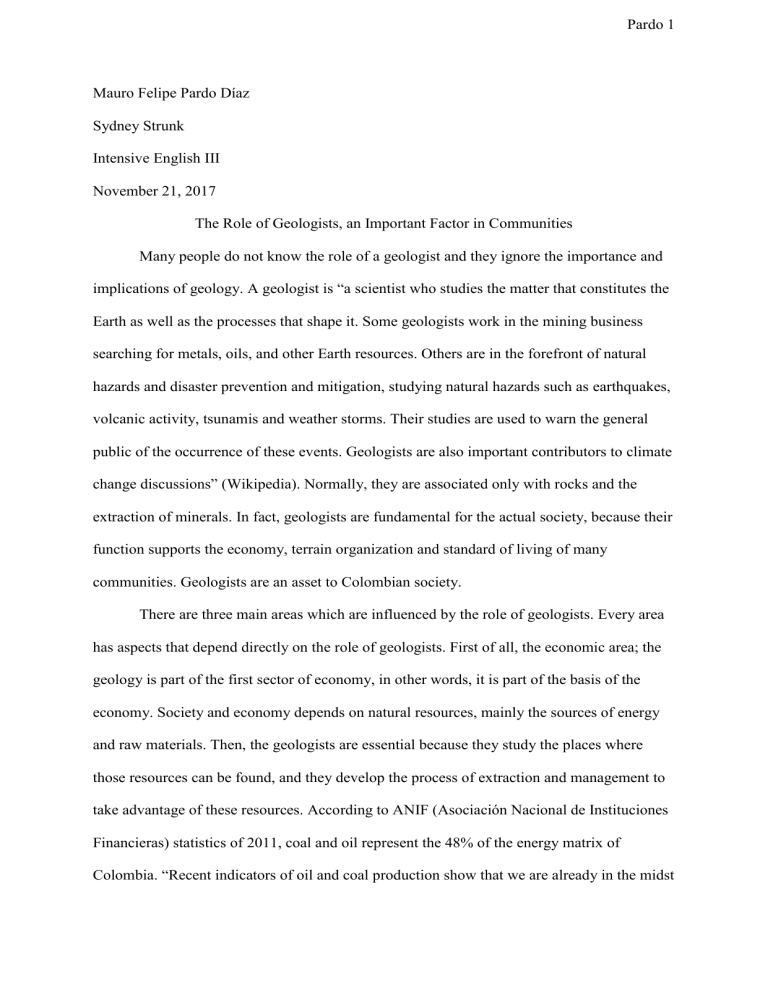
Pardo 1 Mauro Felipe Pardo Díaz Sydney Strunk Intensive English III November 21, 2017 The Role of Geologists, an Important Factor in Communities Many people do not know the role of a geologist and they ignore the importance and implications of geology. A geologist is “a scientist who studies the matter that constitutes the Earth as well as the processes that shape it. Some geologists work in the mining business searching for metals, oils, and other Earth resources. Others are in the forefront of natural hazards and disaster prevention and mitigation, studying natural hazards such as earthquakes, volcanic activity, tsunamis and weather storms. Their studies are used to warn the general public of the occurrence of these events. Geologists are also important contributors to climate change discussions” (Wikipedia). Normally, they are associated only with rocks and the extraction of minerals. In fact, geologists are fundamental for the actual society, because their function supports the economy, terrain organization and standard of living of many communities. Geologists are an asset to Colombian society. There are three main areas which are influenced by the role of geologists. Every area has aspects that depend directly on the role of geologists. First of all, the economic area; the geology is part of the first sector of economy, in other words, it is part of the basis of the economy. Society and economy depends on natural resources, mainly the sources of energy and raw materials. Then, the geologists are essential because they study the places where those resources can be found, and they develop the process of extraction and management to take advantage of these resources. According to ANIF (Asociación Nacional de Instituciones Financieras) statistics of 2011, coal and oil represent the 48% of the energy matrix of Colombia. “Recent indicators of oil and coal production show that we are already in the midst Pardo 2 of a mining-energy boom. The fuel fossils will continue to be more important than other sources of energy” (Clavijo 2). On the other hand, the geothermal resources (heat energy from the subsoil) in Colombia are still unexplored waiting to be used for the service of the population; it would be possible to develop a profitable geothermal energy production. Therefore, the country needs geologists to benefit the economy and promote its growth. The second area is the territorial arrangement planning (POT according to its initials in Spanish). This refers to the actions aimed at guiding and managing the physical development of territory and land use. “POT becomes a navigation chart for urban and rural land in order to consolidate a city model in the long term” (Cámara de Comercio de Bogotá). Geologists have an important function elaborating the POT because they participate in the planning and execution of studies and projects aimed at human settlements, sanitation and environmental impact (Universidad de Buenos Aires). The statement suggests that geologists are responsible for the use that is given to the land. They can collaborate to make a better use of the space and to form more comfortable communities (cities, towns and environments). In third place, regarding the standard of living, there is a topic in which geologists take part that is fundamental for every community: the freshwater supply. According to the academia, “geologists perform studies of water basins and calculate their reserves and quality of groundwater. They determine sustainable flows and vulnerability of aquifers, determine corrective and contingency measures against polluting events. And they evaluate the impact of groundwater exploitation” (Universidad de Buenos Aires). This illustrates the importance and advantage of having hydrogeological studies in order to improve the quantity and quality of water supply, which is so far the most important factor of standard of living. On the whole, geology has a great impact on society because a geologist is “the one who can quantify and qualify the resources and geological reserves, raw materials for consumption of the inhabitants (food, housing, roads and health); who can detect the Pardo 3 geological faults that may affect hydraulic works or other civil infrastructure works; geologists can detect and collaborate in the prevention of natural risks of volcanic or seismic origin; they are trained to identify drinking water aquifers to supply the populations; actually, a geologist can advise the different governing bodies on the use of geological resources within a sustainable context, which allows for the formulation of policies, norms, plans and programs that enable national development” (Universidad de Buenos Aires). In conclusion, the labor of geologists is vital for society, not only in the economy but also in topics such as the territorial arrangement, the standard of living and environmental issues. This work is an asset for the population, and when it is invested (in industry, communities, science and education) it produces development for the country and the global community. Work cited Cámara de Comercio de Bogotá. “Plan De Ordenamiento Territorial.” www.ccb.org.co/Transformar-Bogota/Gestion-Urbana/Ordenamiento-territorial/Plande-Ordenamiento-Territorial. Accessed 11 Nov. 2017. Clavijo, Sergio. “Tendencias energéticas en Colombia.” Asociación Nacional de Instituciones Financieras (ANIF), 3 Oct. 2011, collaboration of Alejandro Vera and Manuel Pinilla, anif.co/sites/default/files/private/comentarios_economicos/Oct3-11.pdf. Accessed 11 Nov. 2017. Universidad de Buenos Aires. “¿Por qué la geología tiene alto impacto en la sociedad?” www.gl.fcen.uba.ar/index.php/academico/ingresantes/geologo-en-la-soc/. Accessed 11 Nov. 2017. Universidad de Buenos Aires. “¿Qué hace un geólogo?” Departamento de Ciencias Geológicas, www.gl.fcen.uba.ar/index.php/academico/ingresantes/que-hace-ungeologo. Accessed 11 Nov. 2017. Pardo 4 Wikipedia. “Geologist.” 8 Nov. 2017, en.wikipedia.org/wiki/Geologist. Accessed 11 Nov. 2017.
